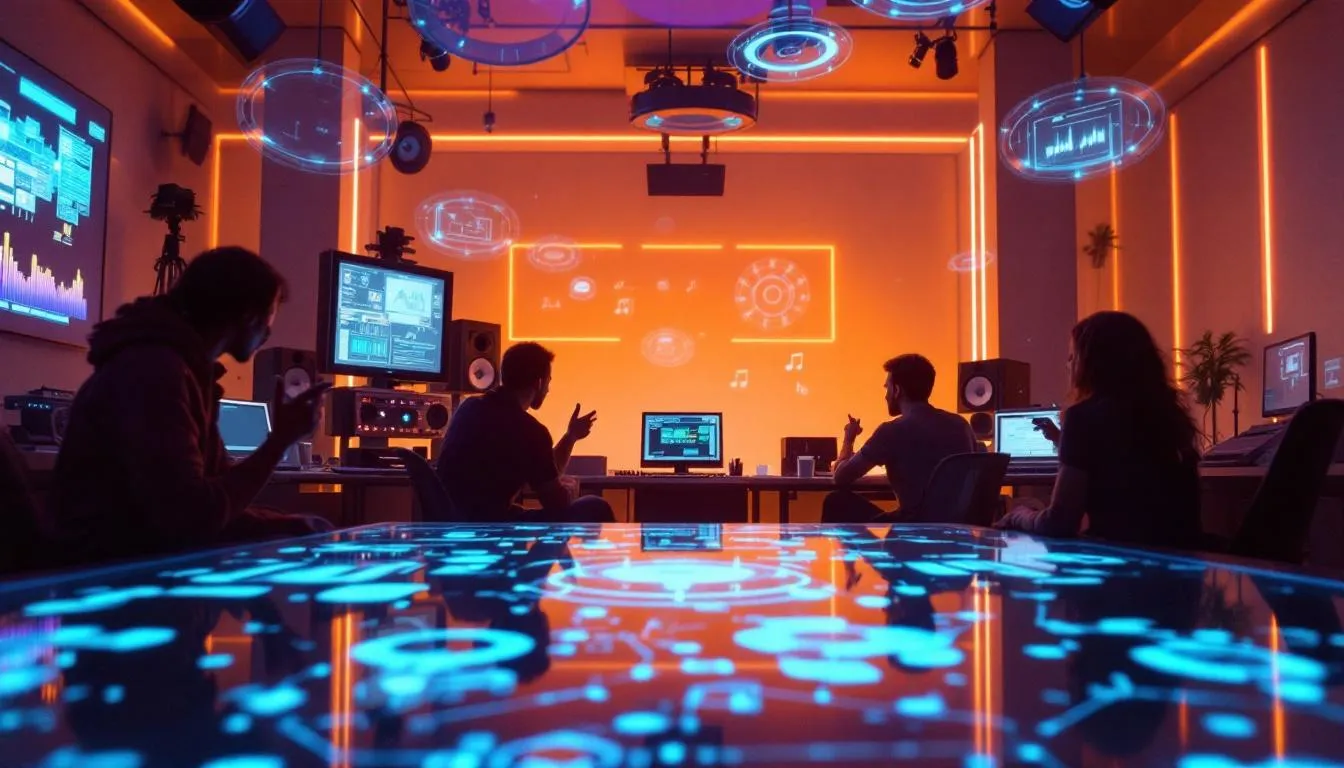
UMG & Udio Ink Deal to Launch AI-Powered Music Creation Service
31 October, 2025
Imagine having a studio-quality producer in your pocket, ready to help you craft your next hit anytime, anywhere. That’s the idea behind the new partnership between Universal Music Group (UMG) and Udio, an AI-driven music technology company. Together, they’re launching a service designed to make music creation more accessible, intuitive, and innovative than ever before.
Why This Partnership Matters
Universal Music Group represents many of the world’s biggest artists, while Udio has built a reputation for cutting-edge AI music technology. Their collaboration signals a major shift in how music could be created in the near future.
This partnership is not about tech for tech’s sake. The music world has been struggling to integrate AI without losing the emotional core that makes songs connect with people. UMG’s role brings artistic oversight and credibility that help balance automation with creativity. By combining UMG’s industry expertise with Udio’s technology, this deal could reshape the creative process and open new forms of expression that were previously out of reach.
Expanding Music Creation Beyond Professionals
For decades, one of the biggest barriers for new artists has been access to professional tools, studios, and collaborators. Udio’s AI-powered platform aims to remove those limitations. With simple prompts, users can generate melodies, beats, and lyrics without needing advanced production skills.
A singer with a great voice but limited technical background could experiment with new arrangements in seconds. This democratization of music creation could spark a flood of new talent and sounds. The platform might also encourage collaboration between artists from completely different genres, such as a folk musician working with an electronic producer, all supported by AI tools that make collaboration easy across distances.
Udio’s technology could also help artists understand audience trends by analyzing large datasets. That insight can guide musicians toward what resonates with listeners while still leaving room for originality. The result could be a more connected and data-informed creative landscape.
How the AI-Powered Service Works
At the heart of Udio’s system is its ability to analyze massive amounts of music and learn the defining patterns of different genres, moods, and styles. When a user enters a melody or chord progression, the AI can generate complementary drums, harmonies, or basslines. The technology does more than imitate trends. It can anticipate what sounds or ideas might connect with audiences next based on current patterns in music.
Because Udio’s AI is trained on a wide range of musical traditions, it can produce results that are both innovative and culturally rich. This gives artists a chance to explore sounds they might never have tried otherwise, like a pop musician drawing from jazz, folk, or global influences.
Smart Collaboration Between Human and Machine
Rather than replacing artists, the platform acts as a creative partner. Musicians can modify AI suggestions, add their own ideas, or ask the system to try something different. The process feels more like working with a bandmate than operating a program.
Over time, the AI learns each user’s preferences and style, adapting to them to provide a more personalized experience. For professionals, it can help refine their signature sound. For beginners, it offers guidance without creative limits. The tool functions as both collaborator and mentor, encouraging exploration and improvement.
Integration with Existing Platforms
UMG and Udio plan to integrate this service with popular digital audio workstations and streaming platforms. This allows creators to use AI-generated material within their normal workflow without changing tools. Users can drag and drop AI-generated stems directly into their projects, saving time and keeping their creative momentum.
There are also plans for creators to distribute their AI-assisted tracks directly to audiences. Built-in analytics could show how songs perform, giving artists valuable feedback for future projects. This kind of integration could redefine how music is created, shared, and optimized.
Addressing Concerns Around AI in Music
AI in music creation comes with real challenges, including fears of generic output and job loss for human creators. The UMG-Udio collaboration is addressing those issues head-on.
Protecting Artistic Integrity:
UMG’s oversight ensures that artistic quality stays central. The AI is designed to support musicians, not replace them, keeping creative control in human hands.
Copyright and Ownership:
Clear guidelines on intellectual property are part of the deal, defining who owns the rights to AI-generated music. These terms also protect the rights of artists whose work may have informed the AI’s learning process. Legal clarity is essential for the industry to adopt this technology confidently.
What This Means for the Future of Music
This new service could dramatically speed up songwriting and production, helping artists test ideas faster and explore new creative directions. It also challenges traditional ideas about authorship, as the line between human and machine creativity begins to blur.
Independent musicians may gain the most from this development. Without needing expensive studios or big budgets, they can create high-quality tracks that compete with major releases. A bedroom producer can make polished music, while a singer-songwriter can build full arrangements on their own. The result could be a massive wave of creativity from artists who previously lacked access to professional resources.
New Revenue Streams and Business Models
For UMG, the partnership is also a strategic business move. AI-generated music could open new licensing and sync opportunities and inspire models such as fan-artist co-creation or subscription-based creative platforms. The deal positions UMG and Udio as leaders in the next phase of how music is made, monetized, and shared.
Final Thoughts
The UMG and Udio collaboration represents a turning point in music creation. By combining human creativity with AI innovation, the two companies are building tools that can empower artists, expand creative possibilities, and reshape how music reaches listeners.
Challenges around legal frameworks and artistic integrity will continue, but the potential rewards are enormous. Whether you are a professional producer or a complete beginner, this new generation of AI tools could change how you experience the process of making music.
